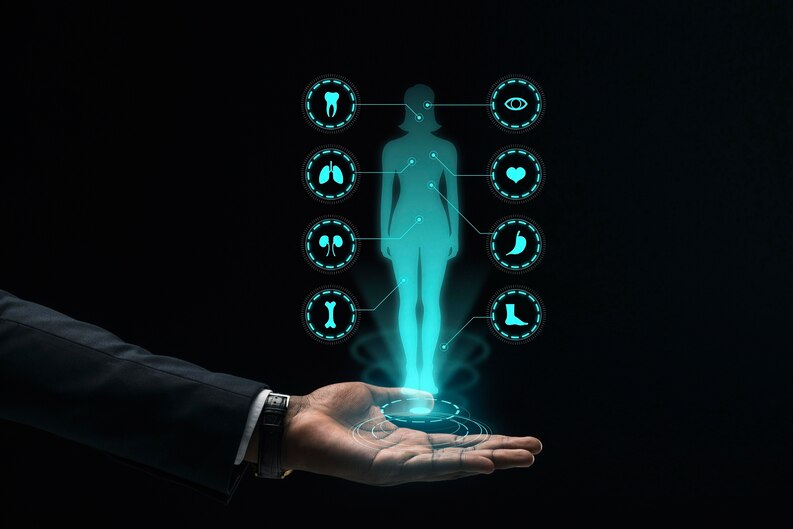Digital Therapeutics and Health Apps
How Digital Therapeutics Are Transforming Healthcare


The past decade has seen tremendous growth in mobile technologies and their integration into our daily lives. Smartphones have become an indispensable part of modern existence, with apps making everything from banking to transportation only a tap away. It was only a matter of time before this digital disruption revolutionized the healthcare industry as well.
Enter digital therapeutics; software applications that utilize digital and online health technologies to treat various medical conditions and clinical disorders. Powered by clinical evidence and driven by AI and machine learning, these innovative tools are being used as a standalone treatment or in conjunction with traditional therapies to effectively manage diseases.
How do digital therapeutics work?
Unlike fitness trackers or symptom checkers, digital therapeutics are clinically validated treatments that are prescribed by healthcare providers just like medicines. They leverage the connectivity of mobile devices to deliver personalized therapeutic interventions via games, videos, tasks and other interactive features.
Data from usage and self-reported inputs help clinicians monitor patients remotely and adjust treatment plans accordingly. Built-in sensors can also capture biometric data to gain deeper insights. For example, apps are being used to treat conditions like diabetes by tracking blood sugar levels, insulin dosages and food intake in real-time.
The benefits of digital therapeutics
Some key advantages that digital therapeutics offer over traditional treatment models include:
Increased accessibility - Patients can get therapy from the comfort of their homes without having to physically visit a clinic every time. This expands reach, especially in rural areas.
Affordability - With no infrastructure or personnel costs, digital solutions bring down the financial burden on patients and the overall healthcare system.
Personalization at scale - Tailored therapeutic experiences can be delivered to a large population by leveraging big data analytics. Treatment gets hyper-focused on an individual level.
Engagement and adherence - Gamification keeps patients engaged in their care journey through rewards and reminders, improving adherence to long-term treatment plans.
Around-the-clock support - Connected devices and AI assistants provide 24/7 support, guidance and monitoring without human intervention at odd hours.
Outcomes improvement - When used as an accompaniment to traditional care, digital therapies have been shown to enhance clinical outcomes through better disease management.
Applications across conditions
So far, digital therapeutics have proven effective for a wide variety of conditions:
Mental health - Apps are being used to treat depression, anxiety, substance abuse and more through cognitive behavioral therapy modules and peer support communities.
Neurological disorders - Tools help manage epilepsy, multiple sclerosis, Parkinson's and Alzheimer's through reminders, exercises and remote patient monitoring.
Metabolic diseases - Diabetes, obesity and cardiovascular risks are tackled through personalized meal plans, activity tracking and medication adherence features.
Dermatological conditions - Apps provide guidance on skin treatments, virtual consultations and tracking of conditions like acne, eczema and psoriasis over time.
Pulmonary illnesses - Respiratory disorders get managed through reminders to take medicines on time, monitor oxygen levels and track symptoms.
Infectious diseases - Digital tools support treatment of HIV/AIDS and tuberculosis through virtual follow-ups, partner notification features and community forums.
The future of digital therapeutics
As clinical evidence for their effectiveness grows, digital therapeutics are expected to play a much bigger role in healthcare delivery worldwide. Some emerging trends include:
Increased prescription and insurance coverage - With FDA and regulatory approvals, payers are likely to cover more digital therapies in the coming years.
Integration with EHR systems - Seamless data exchange between apps and electronic medical records will optimize collaborative care models.
Personalized biomarker tracking - Advanced sensors may facilitate highly customized treatment based on an individual's genetic profile and molecular signatures over time.
Therapies as a service - Vendors may offer digital solutions on a subscription basis for long-term chronic disease management and prevention.
Combination with drugs - Digital and pharmaceutical therapies may converge to treat complex multi-factorial conditions through combination product models.
In conclusion, digital therapeutics are revolutionizing how medical care can be delivered. By making treatment more accessible, affordable and effective, they hold immense potential to transform population health outcomes worldwide.
